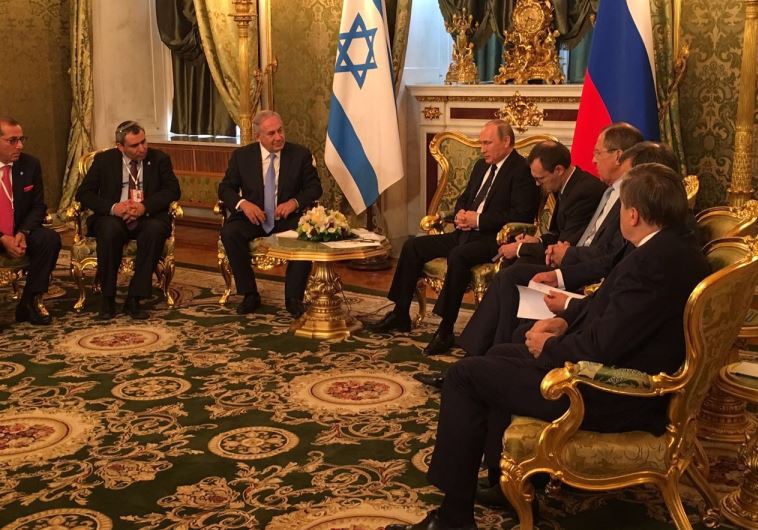Netanyahu and Putin meet as Russia calls for new Israeli-Palestinian talks
“There are bonds of sympathy and empathy between Israel and Russia, with a common past that has tragic chapters for both peoples," Netanyahu says.
 Prime Minister Benjamin Netanyahu meets Russian President Vladimir Putin in MoscowUpdated:
Prime Minister Benjamin Netanyahu meets Russian President Vladimir Putin in MoscowUpdated: